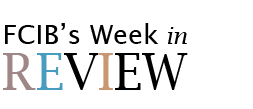
November 20
Country Risk Roundup
Chinese renminbi may become a reserve currency, while U.S. dollar rises; Russia on slow economic recovery as eurozone shows steady GDP growth; new deals to restructure debt offered to Ukraine and Poland coal producer; Turkey at a crossroads; and Venezuela could face policy changes.
Renminbi Closer to Being a Reserve Currency: The International Monetary Fund will decide on Nov. 30 whether to use the renminbi in calculating special drawing rights, an international type of monetary reserve currency. (The Street)
Russia on Slow Road to Economic Recovery: The 4.1% year-over-year decline in Russian real gross domestic product (GDP) was less sharp than many had expected, but it was not a positive report. Low oil prices and Western sanctions continue to hinder the recovery. (Wells Fargo)
Eurozone GDP Growth Steady: While real GDP growth in the eurozone fell short of expectations in the third quarter, the cyclical upswing in the region remains intact. (Wells Fargo)
Russia Offers Ukraine Better Terms to Restructure Debt: Russia made a surprise offer to restructure Ukraine’s debt, saying it would accept an annual debt repayment of $1 billion over three years if the West provided guarantees. (Reuters) Troubled Ukraine Exits Recession: A cease-fire in Ukraine’s 19-month conflict with pro-Russian militants has allowed companies to boost production. It has also eased pressure on Ukraine’s currency, the hryvnia. (Irish Times)
Turkey at a Crossroads: After a rough 2015, Turkey seems to be heading toward a modest recovery in 2016; however, a few glitches are expected. (Euler Hermes)
Venezuelans Face Off Against ‘Chavismo’: Venezuela’s legislative elections on Dec. 6 could provide insight into whether the policies of former President Hugo Chavez continue to resonate with the public. (The Global Observatory)
Poland Coal Producer Expected to Restructure Debt: Coking coal producer JSW is struggling to cope with record low coal prices and high mining costs. The company is expected to reach an agreement with its bondholders to restructure debt. (Reuters)
Value of U.S. Dollar Rises: The dollar touched a 10-month high versus the Swiss franc and edged up slightly against the euro and Japanese yen. (CNBC)
The Rise of Putin
Source: Chris Kuehl, Ph.D.
The transformation of the reputation of Russian President Vladimir Putin is one of the hottest topics at the G-20 meeting. It was only a year or so ago that Putin was essentially a global pariah due to the intervention in Ukraine and his bellicose position in Syria. Today, the sense is that Putin and Russia will hold the key to any kind of solution in Syria. The facts are stacking up in his favor.
The ISIS threat is now paramount, and all other issues have been taking secondary status. It has become a matter of “the enemy of my enemy is my friend.” The western states want to be rid of Syrian President Bashar al-Assad, but they want to be rid of ISIS more. The U.S. and Europe will not commit to putting troops on the ground, and they agree that ground forces are required to defeat ISIS. The only actor that has ground force is al-Assad, as he still has a loyal army and the help of both Hezbollah and the Iranians. The plain fact is Assad is now more of an asset than enemy—at least until the ISIS threat is contained.
Putin is the link between the Assad regime and the western states, and he is fully aware of this. It is impossible for the U.S. and Europe to work directly with Assad. They will have to continue to assert they want him ousted, but the situation on the ground has radically changed in the last 72 hours. The battle against ISIS is No. 1 now, and that means playing with any actor that shares that goal—Assad and Putin included.
Japan GDP Declines in Third Quarter
For the fifth time in seven years, Japan has slid back into recession, putting country leaders under pressure to introduce new stimulus measures. The world’s third-largest economy shrank at an annualized rate of 0.8% from July through September. The outlook for its economy remains weak, with many analysts expecting it to grow moderately in the fourth quarter. (The Guardian)
The inventory drawdown and decline in business spending swamped positive contributions to Japan’s gross domestic product growth from faster consumer spending, increases in net exports and a modest gain in government spending. Businesses remained concerned about the ongoing slowdown in China and implications for slower global growth. (Wells Fargo).
FCIA Report Cites Developments in Several Countries
The November report from FCIA Trade Credit and Political Risk Insurances provides updates on Argentina, China, Ecuador, Germany, Ghana, Turkey and the United States. Highlights include:
Argentina’s insurance companies have refused to heed a government decree that orders them to sell 25% of their U.S. dollar-denominated bonds by Nov. 3. They also have been directed to sell an additional 25% by the end of November and divest the remaining 50% by Dec. 31. The government created the measure to help stabilize the peso, but insurance companies say it is unlawful and seriously harms their business interests.
Ecuador is in a technical recession, according to the central bank’s latest gross domestic product data. The decline has led to a 56% reduction in government oil revenues.
German engineering firms have reported lower demand from China, Russia and other emerging economies, in a sign that Europe’s largest economy is relying more on domestic demand and a recovering eurozone for growth. (FCIA November 2015)
Week in Review Editorial Team:
Jennifer Lehman, Marketing & Communications Associate; Diana Mota, Associate Editor; and Brian Shappell, Managing Editor






























